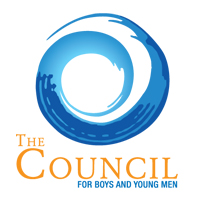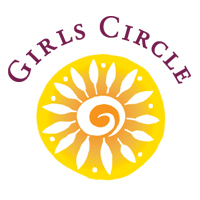
The Boys Council program provides a strengths-based, group approach to promote safe and healthy passage through pre-teen and adolescent years for boys and young men. This program challenges myths about how to be a “real boy” or “real man.” It engages boys in activities, dialogue, and self-expression to question stereotypical concepts increases their emotional, social, and cultural literacy, and promotes valuable relationships with peers and adults.

The Girls Circle program uses gender specific themes and topics which relate to girls’ lives, such as: self-trust, being a girl, friendship, body image, goal setting, sexuality, substance use, positive communication, and decision-making.
This program integrates theory, practices, and skills training in a format designed to increase positive connection, personal and collective strengths, and competence in girls. This program aims to counteract social and interpersonal forces that impede girls’ growth and development by promoting an emotionally safe setting and structure within which girls can develop caring relationships and use authentic voices.
Education Career Opportunity Program (ECO)
ECO is a program designed to meet the changing needs of court-involved youth. ECO offers a variety of services to clients, including:
- GED preparation, study assistance in each test area, help with scheduling, payment assistance, etc.
- Employability skills, including completed resume, job search, interviewing skills, work maturity skills, etc.
- Independent living skills, such as personal finance, household management, nutrition, etc.
Weekend Detention Program
This program is held in the Ada County Juvenile Detention Center using evidenced-based strategies to assist youth involved in the criminal justice system with making positive changes to thoughts, feelings, and behaviors.
The program includes a family component, and is designed to provide accountability and information. Sessions are held inside of the detention facility, however the juvenile returns home at the end of each session. Parents are involved in a portion of the second day of the program.
Program Session Hours:
7:30 a.m. – 4:00 p.m. – Saturday
7:30 a.m. – 4:00 p.m. – Sunday
Curriculum topics include:
- What Got Me Here? Exploring the consequences of past decisions, beginning to learn skills for controlling anger, handling negative peer pressure, working with authority figures and strengthening family ties
- Responsible behavior; focusing on the link between thoughts, feelings and behaviors. Exploring the connection between situations, self-talk, feelings and how they relate to behavior choices
- Relationships and communication; focusing on understanding and improving relationships. Communication skills are presented to help express one’s self in healthy ways
- Individual change plan; exploring strategies for moving through the steps of change. Creating a personalized plan for targeting, developing and measuring progress toward goals.
Weekend Detention Program Forms:
Cover Letter
Health Screen Form
Release for Medical – Dental – Surgical Treatment
Acknowledgment of Requirements – Weekend Detention Program
The Prevention Program incorporates two components: 1) a collaboration between juvenile court and local school districts and 2) provides law-related education to juveniles in the school districts.
Prevention Groups
Interns at Juvenile Court are trained in Small Group process and ACJCS’ Prevention curriculum at the start of fall semester. They are then assigned in teams to junior highs or middle schools that collaborate with the court in facilitating groups for “at-risk” youth. Groups are held at the school during the day and rotate through the different periods so students do not miss much of any particular class. Groups usually run eight weeks long and impact one school period per week.
Law Related Education Presentations
Law Related Education (LRE) presentations are conducted by the ACJCS Prevention Program Coordinator and support staff. The presentations include a video tour of the detention center, a lecture on laws that youth typically violate, an explanation of juvenile and magistrate court processes, and a question and answer session. These LRE presentations provide a basis for good decision-making and learning the consequences of violating the law, and facilitators relate to students in a personal way without using scare tactics.
